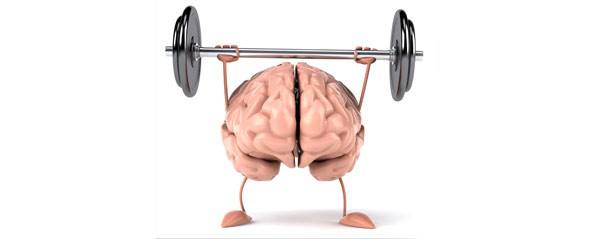Slight shortages of vitamins, minerals and other substances can weaken our brain long before this manifests itself in physical complaints. The brain needs enough vitamins and minerals to function normally but not to perform its tasks optimally. The problem is, and many such important nutrients are missing from our Western high-fat and high-sugar diets with lots of processed foods.

Folic acid is a vitamin that affects subtle mood and memory changes. A lack of folic acid means that less serotonin * is produced. If the level of folic acid in our blood is too low, this can manifest itself in poor emotional stability, lack of concentration, lack of self-confidence, introversion, depression, forgetfulness, irritability and insomnia.
Folic acid can even relieve depression!
Vitamin B6 is indispensable for the production of neurotransmitters such as serotonin *, dopamine * and norepinephrine (precursor of adrenaline *). A vitamin B6 deficiency has major consequences for the functioning of our nervous system and our brain. Inadequate intake of B6 makes us more irritable, depressed, angry, tired and confused and reduces our concentration and memory. Sufficient B6 ensure that the storage and processing of information improves. Vitamin B6 also helps - together with folic acid - to lower the homocysteine content * and gives the memory a boost by promoting the metabolism of amino acids.
A lack of vitamin B12 can develop slowly but can lead to serious neurological problems. This is because vitamin B12 protects the outer layer of the nerve fibers. If the nerve fibers are affected, problems such as loss of balance, muscle weakness, mood disorders, memory loss, dementia and psychoses can occur. Vitamin B12 also helps lower homocysteine levels * to protect the brain from strokes.
Too little vitamin B12 is usually not the result of a deficiency in the diet, but of a poor absorption in the stomach. As we age, the ability to absorb this vitamin declines.
Our body only has small stores of thiamine. We must therefore take this vitamin daily with food or with supplements. Thiamine influences our mood: a lack can lead to fatigue, lack of self-confidence, mood swings and depression. Behavioral problems such as hyperactivity, learning difficulties, tantrums and sleeping problems can also be the early symptoms of the vitamin B1 deficiency disease beriberi. Severe thiamine deficiencies even lead to amnesia, apathy and dementia. Why is this now? A lack of thiamine hinders the brain's ability to use glucose. As a result, there is not enough energy available for our brains to function properly.
Make a free website with Yola